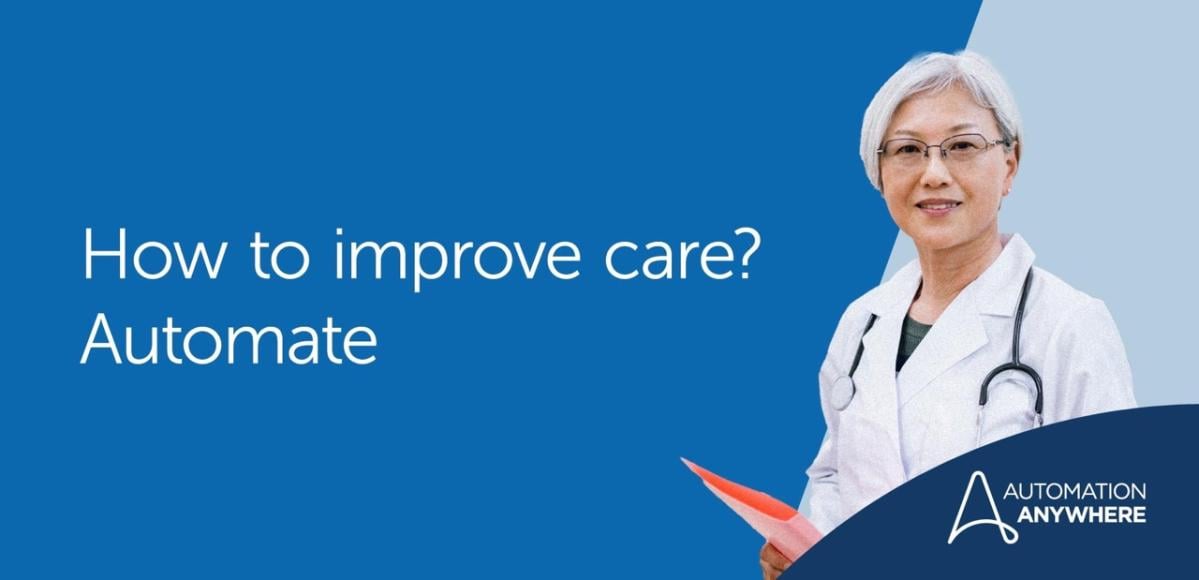- Login
- Search
- Contact Us
-
Have a question? Our team is here to help guide you on your automation journey.
-
Explore support plans designed to match your business requirements.
-
How can we help you?
-
- AI
AI Without the Hype From pilot to full deployment, our experts partner with you to ensure real, repeatable results. Get Started
- Automation Anywhere AI
-
- Solutions
Featured Agentic Solutions
Accounts Payable Invoice automation—No setup. No code. Just results. Accounts Payable
Customer Onboarding Scale KYC/AML workflows. Customer Onboarding
Customer Support Keep queues moving, even at peak load. Customer Support
Healthcare RCM Revenue cycle management that runs itself. Healthcare RCM
- Products
Platform Features
- Agentic process automation (APA)
- Robotic Process Automation (RPA)
- View all Products
-
- Resources
Get Community Edition: Start automating instantly with FREE access to full-featured automation with Cloud Community Edition.
Featured
 Named a 2025 Gartner® Magic Quadrant™ Leader for RPA.Recognized as a Leader for the Seventh Year in a Row Download report Download report
Named a 2025 Gartner® Magic Quadrant™ Leader for RPA.Recognized as a Leader for the Seventh Year in a Row Download report Download report- Become an Expert
- Developer Tools
- Get Support
- View all resources
-
- Partners
Find an Automation Anywhere Partner Explore our global network of trusted partners to support your Automation journey Find a Partner Find a Partner
- Find a Partner
- For Partners
-
Blog
The Impact and Benefits of Automation on Healthcare
Navigate to content
The global artificial intelligence market reached a value of $10.4 billion in 2021 and might expand at a CAGR of 38% from 2022 to 2030. It implies that in the next few years, AI will become more widely adopted by various industries, with healthcare automating a few more tasks to make the workflow easier.
As automation becomes more sophisticated, it enables hospitals to do more with a leaner workforce and fewer running resources, resulting in time and cost savings. It’s also good news for patients, as automation improves their quality of care and reduces their length of stay.
In the future, automation may help to address the global shortage of healthcare workers. The benefits of automation in healthcare can be significant, but the potential impact on health outcomes and costs is poorly understood. Continue reading to explore how automation is transforming healthcare.
The impact
Automation has had a significant impact on healthcare in developed and developing countries. In developed countries, it has improved patient safety by reducing medical errors. For example, barcode medication administration (BCMA) systems are now commonplace in US hospitals. These systems help to reduce the risk of medication errors by requiring nurses to scan a patient’s wristband and the medication’s barcode before administering it.
In developing countries, automation is helping to close the gaps in access to care. For example, in India, a lack of qualified doctors has led to a shortage of healthcare professionals, making it difficult for people living in rural areas to get the care they need.
Thanks to telemedicine—which uses telecommunications and information technologies to provide remote clinical services—people in rural locations can now consult with doctors in urban areas. It has significantly impacted healthcare in India and is likely to continue in the future.
The benefits
Automation in healthcare has many benefits, for patients and providers:
1) Automation improves patient safety
Automation reduces the risk of human error, one of the leading causes of death and injury in healthcare. For example, computerized provider order entry (CPOE) systems reduce mistakes in prescribing and administering medications.
2) Automation increases efficiency
Healthcare providers can work more efficiently and effectively with automation. Robotic surgery can help surgeons perform complex procedures with greater precision and accuracy. Automated pharmacy dispensing systems can also reduce the time it takes to fill prescriptions.
3) Automation improves access to care
Pre-pandemic use of telemedicine in Canada was only 11 visits per 1000 patients in rural areas and seven per 1000 patients in urban areas. Because of the pandemic, telemedicine visits increased to 142 per 1000 and 220 per 1000 patients among rural and urban patients, respectively. This increase in access to care is likely to continue as the benefits of telemedicine become more widely known.
4) Automation engages patients
Patient engagement is vital for improving outcomes. Automation provides them with timely and relevant information. For example, automated appointment reminders can help patients remember to keep their appointments.
Technology has revolutionized healthcare delivery
The impact and benefits of automation on healthcare are vast and far-reaching, making the technology a potential force for good to enhance patient care and the business of care in healthcare organizations around the world.
See How Automation Can Help Your Organization.
About Automation Anywhere Staff
Get to know the Agentic Process Automation System.

For Students & Developers
Start automating instantly with FREE access to full-featured automation with Cloud Community Edition.



